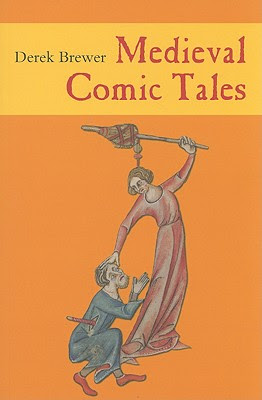I often feel frustrated when
reading contemporary work, especially the work of my peers. Everything seems worn out and boring. Everyone writes with incomplete sentences. We all try to sound innovative and shocking
and use vivid, emotive language; we strive to write ironically and absurdly;
the literary Titans among us may even succeed in sending their readers into
fits of depression. However, the
sixties are long over, and old innovations are no longer innovative. The old clichés have been replaced by new
ones.
Now, I have nothing against older
work. Before a cliché was cliché, it was
genius. Rather, what irks me is work which
parades innovation the same way works have been parading innovation for
decades. The new is not forever
young.
I see two main things which inhibit
writers (not only writers, but all artists, which is to say, all people, but
writers, for the sake of this essay):
first, it is impossible to escape one’s context; second, “there is
nothing new under the sun.” These
inhibitions are inescapable, but they are not unconquerable. They are the time to beat. Only the best runners make it.
If inhibition one is that the
writer is necessarily in relationship with his context, then in order to
succeed as an original, creative artist, he must gain a wider perspective on that
context. He must avoid “chronological
snobbery,” that is, the idea that newness or oldness equals inherent worth. He must expose himself to a wide variety of
literature and ideas from different cultures and different times, past and present. He must engage with his current culture
through the lens of history. He cannot
escape a relationship with his culture, whether with or against it, but he can
think carefully on it, in the honest humility that comes from realizing the shortcomings
of his own perceptions.
If inhibition two is that “there is
nothing new under the sun”, then the writer’s job is get over the delusion of
newness. The truly new doesn’t actually
exist. This doesn’t mean originality doesn’t
exist: originality is timelessness. But in order to achieve this originality, originality
cannot be the goal, for it does not exist independently. It is a by-product of beauty. If the essence of a work is beauty, it will
be original also. If the essence of a
work is mere imitation of beauty, it will soon fade into forgotten fad. This is why Shakespeare and Dostoevsky and
Tolkien will last. They did not invent Hamlet, conceive of the saving nature of
beauty, or beget fantasy: but they achieved beauty in the forms they knew, and,
as a result, achieved timeless originality.
And what is a self-critical writer
to do? Most of the time, I find my work
sub-par. But I keep reading the great
works and I keep aiming for beauty in my writing. Sometimes I even try to push boundaries—even pen
a fragment or two (as that hasn’t been done yet)—but my goal in boundary
pushing is not boundary pushing. It’s
beauty. And maybe, someday, I’ll just
begin to begin to border on it.












